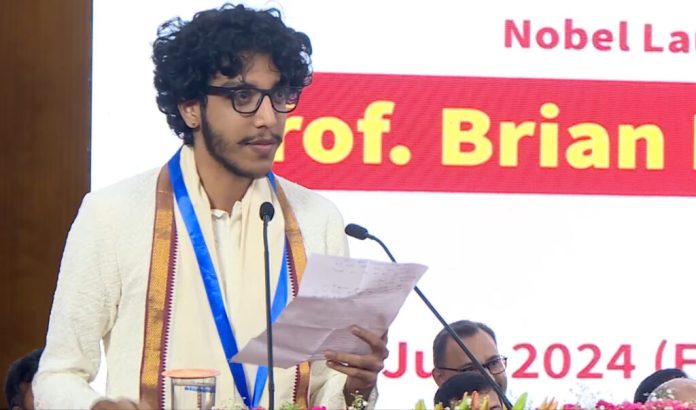Chennai, July 20: During the 61st convocation of IIT-Madras on Friday, Dhananjay Balakrishnan, recipient of the governor’s prize, used his acceptance speech to address the ongoing “mass genocide” in Palestine, emphasizing the urgency and severity of the situation, reported the Times of India.
Dhananjay Balakrishnan, awarded for best all-round proficiency in both curricular and extracurricular activities in his dual degree in mechanical engineering, expressed that ignoring such issues would be a disservice to his values. “There is a mass genocide going on in Palestine. People are dying in vast numbers, and there is no end in sight,” he stated.
He raised concerns about the complicity of STEM fields in advancing imperialistic motives, specifically citing Israel. “STEM has historically been used to further the ulterior motives of imperial powers, such as Israel,” Dhananjay said. He pointed out that tech giants, highly sought after by engineering graduates, are implicated in the conflict by providing technology used in warfare.
Dhananjay admitted the complexity of the issue, acknowledging, “There are no easy solutions, and I don’t have all the answers. But as engineers, it is our responsibility to be aware of the consequences of our work and to interrogate our position within these systems of power imbalances.”
He urged his peers to incorporate this awareness into their daily lives and work towards alleviating oppression. “We must understand what we can do to liberate the oppressed, whether it be along lines of caste, class, creed, or gender,” he added.
Dhananjay concluded by invoking Isaac Newton’s famous words about standing on the shoulders of giants, calling on graduates to lift people out of misery. “Inaction is complicity. We must take action to make the right decisions, however hard they may be,” he urged.
The convocation saw 2,636 students, including 444 scholars, receiving their degrees. Nobel laureate Brian Kobilka was present to hand over the prizes and medals.
This bold address by a graduating student has sparked a significant conversation about the ethical responsibilities of engineers and the broader implications of their work in global conflicts.




